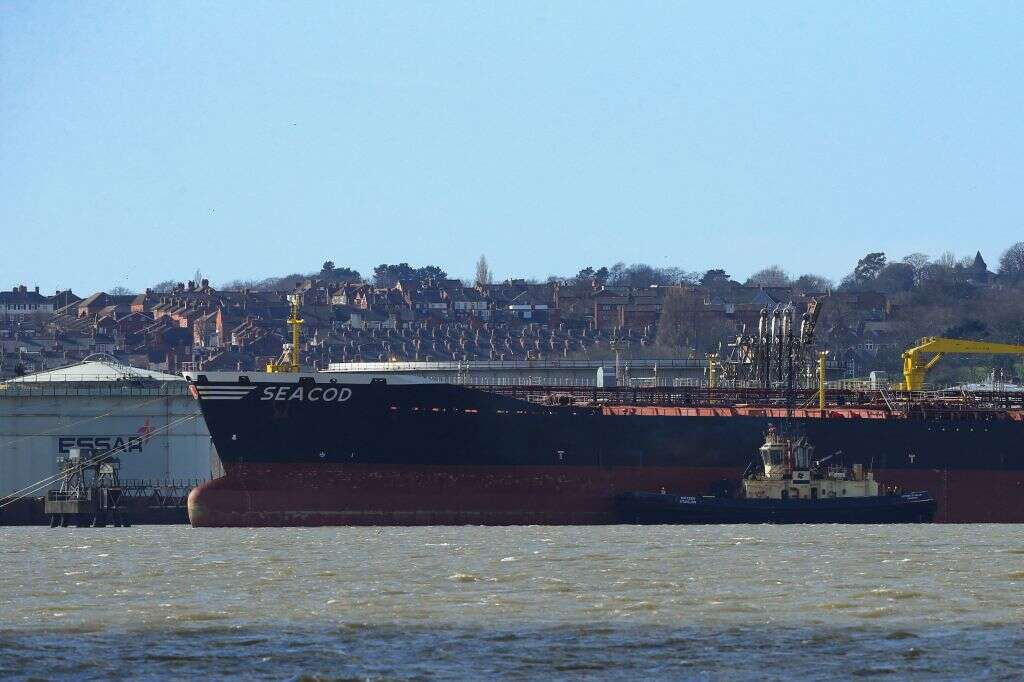
Since the end of the pandemic, the UK has been plunged into a cost-of-living crisis that has caused the biggest one-year drop in disposable income for over three decades. Inflation has risen to 5.5% for the first time since the early 90s, and Samuel Tombs, the chief UK economist at Pantheon Macroeconomics, has warned that it could now peak at 8.2% in April.

Russia’s full-scale invasion of Ukraine on 24 February could trigger the world’s worst refugee crisis, the US has warned – but 1,400 miles away from the country, in the UK, the impact will begin to be felt within days, as households are squeezed still further. Here’s what to expect.
Gas and electricity prices will rise.
About a third of the 465 billion cubic metres of gas consumed in Europe in 2020 came from Russia, according to Bloomberg. The UK is less dependent on Russian gas than its European neighbours – just 7% of British gas imports came from Russia in 2020, compared with 65% for Germany. But the latter’s decision to halt approval of Nord Stream 2, a gas pipeline that was supposed to bring gas from Russia to northern Germany, will have a knock-on effect.
If Europe can’t get its gas from Russia, it will look to another source – such as Norway, which provides a third of the UK’s total gas supply. This will be enough to drive up prices very quickly; the increased expectation of demand for non-Russian gas caused British natural gas futures to surge by almost 50% on 24 February. This is a particular issue for the UK because it is unusually dependent on gas: according to the 2019-20 English Housing Survey, 86% of dwellings in the UK have gas central heating.
Analysts are expecting any new tranche of sanctions to include Russian energy providers. Britain should hope for an early spring: a let-up in cold weather will allow for some build-up of reserves, which have been badly depleted since last year’s cold winter and the demand spike after lockdown.
Higher oil prices beget higher petrol prices.
Any sign of conflict generally causes oil prices to rise, as traders worry about disruption to supply. When Vladimir Putin sent his troops into Ukraine, the price of Brent crude rose above $100 a barrel for the first time since 2014.
Not surprisingly, any rise in oil prices directly affects petrol prices. Average pump prices have risen to 149.7p per litre, a record high, while diesel now costs more than 153p per litre on average, according to the RAC.
Simon Williams, an RAC spokesperson, warned after the invasion began that petrol prices would hit £1.50 “very soon”. “If the oil price was to increase to $110 there’s a very real danger the average price of petrol would hit £1.55 a litre,” he said. “At $120 a barrel – without any change to the exchange rate which is currently at $1.35 – we would be looking [at] £1.60 a litre and £88 for a full tank.” The last time oil prices rose that high was March 2012.
Food price inflation will be higher, for longer.
There’s a reason Ukraine is known as the “breadbasket of Europe”: it provides about a tenth of global wheat exports, according to the ratings agency S&P, and accounts for 13% of global corn exports (which are used in animal feed, meaning the price of meat will also rise). If Russia closes off Ukrainian ports, prices will jump as food manufacturers scramble to find other sources of grain.
Carlos Mera, the head of agri-commodity markets at Dutch bank Rabobank, told the Grocer that wheat is “the most important [food] commodity”, and predicted its price could rise by anything from 10% to 30%, depending on whether Ukraine’s Black Sea ports are blockaded by Russia.
Food prices in the UK are already rising: in January, the price of food rose by 2.7%, its highest level since October 2013, according to the British Retail Consortium.
Other goods will become more expensive as supply chains face even more stress.
It is not only ports on the Black Sea that could be affected; in 2017 the world’s largest shipping operator, Maersk, was taken out of action for several days when a Russian cyberattack designed to target Ukraine spread across the world. It’s not clear whether Russia has the means to launch another such attack but if it did, it could have significant effects on manufacturing, shipping and other businesses worldwide.
Russia is also a major exporter not only of energy but of steel, and it is the world’s largest exporter of palladium, which is used in car manufacturing. While the crisis is obviously most serious for the people of Ukraine, it could have ramifications for everyone in the globalised economy.
This article originally appeared on NewStatesman.com.






